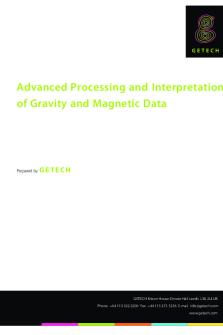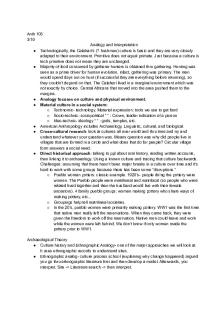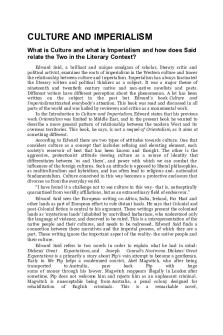NEW Imperialism and its interpretation PDF

| Title | NEW Imperialism and its interpretation |
|---|---|
| Author | Anonymous User |
| Course | History of Modern Europe |
| Institution | University of Delhi |
| Pages | 5 |
| File Size | 103.7 KB |
| File Type | |
| Total Downloads | 382 |
| Total Views | 548 |
Summary
NEW IMPERIALISMIn historical contexts, New Imperialism characterizes a period of colonial expansion by European powers, during the late 19th and early 20th centuries. The period featured an unprecedented pursuit of overseas territorial acquisitions. At the time, states focused on building their empi...
Description
NEW IMPERIALISM In historical contexts, New Imperialism characterizes a period of colonial expansion by European powers, during the late 19th and early 20th centuries. The period featured an unprecedented pursuit of overseas territorial acquisitions. At the time, states focused on building their empires with new technological advances and developments, making their territory bigger through conquest, and exploiting the resources of the subjugated countries. During the era of New Imperialism, the Western powers individually conquered almost all of Africa and parts of Asia. The new wave of imperialism reflected ongoing rivalries among the great powers, the economic desire for new resources and markets. Many of the colonies established during this era gained independence during the era of decolonization that followed World War II. The qualifier "new" is used to differentiate modern imperialism from earlier imperial activity, such as the so-called first wave of European colonization between the 15th and early19th centuries. In the first wave of colonization, European powers conquered and colonized the Americas and Siberia; they then later established more outposts in Africa and Asia. This New Imperialist Age gained its impetus from economic, military, political, humanitarian, and religious reasons, as well as from the development and acceptance of a new theory—Social Darwinism—and advances in technology. THEORIES. Economic Interpretation Radical View J.A. Hobson, a British economist and social thinker, put forward the “theory of under consumption”. He is states that the economic tap root of imperialism lay in the export of capital for investment opportunities which were declining at home but were available outside. So for him imperialism was the outcome of the need for new outlet for the capital investment. According to Hobson after 1870 the imperialism was a product of malfunctioning of capitalist system in metropolitan cities. He states that only the distribution of wealth would be no longer useful for the new imperialism era. By removing the accumulated surplus capital, imperialism would have been redundant. He is of the opinion that there is no surplus capital which could not
be invested in home industries. It is the quick and easy profit motive that drove the capital out and led to imperialism. Schumpeter, an Austrian economist, he understood imperialism as imperfect and irrational tendency to cause war and to conquer with no real aim. He also believes that the ruling class sustains and urges along this mentality of war. According to him capitalist imperialism thrive best with peace and free trade. Schumpeter unlike Marxist did not believe that imperialism grows naturally out of capitalism. Where the similarities lie is that Schumpeter like Marxists does believe that the idea that class forces play a strong role in imperialism and his understanding of the class struggle is reflected in his theory on imperialism. He believes that if ruling class didn’t sustain conditions to war and conquest then imperialism would have been disappeared by now. Schumpeter analyses Imperialism from a historical point to more modern times. He believes that as capitalism begins to grow, no social class will desire to expand through war because free trade will be too alluring a choice over expansion. He agrees with Hobson that the return to protectionism was the characteristic aspect of new imperialism.
Marxist View For the Marxist theory a connection exists between the changes which took place in the structure of capitalism in the leading countries during the period after 1870 and the new forms of interstate rivalry and the carving up of the world into colonial empires and spheres of influence which marked the beginning of the epoch of imperialism. It follows from the application of historical materialism that in their main direction the political trends of the so-called ‘new imperialism’ expressed the working out of economic laws and reflected the contradiction between the development of productive forces and the national state. According to Marxist, imperialism is a special stage in the development of capitalism which began in the latter part of nineteenth century.
Marx analysis of the capitalist mode of production provides the starting point for the Marxist Leninist theory. According to Lenin imperialism is the highest stage of capitalism. To Lenin “Imperialism emerged as the development and direct continuation of the fundamental characteristics of capitalism in general.” In his book Imperialism: The Highest Stage of Capitalism emphasizes the importance of finance capital rather than new markets. According to him, it was a system of free competition up to 1860. But by 1900 it turns into opposite of competition, -
i.e., monopoly. It is the monopoly stage of capitalism. By monopoly Marxist do not mean the occupation of each industry or branch of enterprise by a single firm. It is rather the passage of capitalism from its earlier stage of more or less free competition to one in which giant firms, trusts and cartels dominate the market. Lenin stressed that monopoly capitalism was a necessary outgrowth from the old-style competitive capitalism, that it took over in a very uneven way and produced new antagonisms and contradictions. He associated these new forms of capitalism arising within the nation state with the division of the world into empires hence with tensions and international rivalries arises war. So he combined the principal economic and political trends of the period to define the nature of epoch of imperialism. Lenin’s theory of imperialism put the emphasis on structural changes in capitalism rather than upon the relations between the metropolitan countries and their colonies. His idea was sought to characterize the nature of the era of imperialism. His significance lies in his ability to bring together all the contradictory features of advanced capitalism under a single head. Both Hobson and Lenin are of the opinion that in capitalist countries there is tremendous pressure for overseas investment, which was the main factor for imperialist expansion after 1870. Even if both of them maintain similarities there lies some difference according to Hobson imperialism was due to malfunctioning of capitalist system while to Lenin it was the peak and final stage of inevitable capitalist development which could be changed through revolution. Aristocracy labour Aristocracy labour
R.Hilferding, an Austrian socialist, is of the opinion that imperialism is the latest and probably the last stage of capitalist development. He sees that in imperialism there exist no free competition. According to him imperial expansion brought each native state a new area under the jurisdiction of the capitalist state to develop raw material production, safeguard capital investment and guarantee markets for each monopoly capitalist output. Thus, modern imperialism was the product of capital export. He puts forward that imperialism was heightening class conflict and also concentrating economic power thus imperialism was performing dual functions.
Rosa Luxemburg, a polish socialist sees that around 1895 when the capitalist system penetrated every corner of the world the era of imperialism started. The struggle to gain control over non capitalist environment increased international tension. She is of the opinion that imperialism resulted from the endeavours of the rising capitalist powers. It was particularly to secure foreign fields of expansion in a world already partitioned among rival powers in earlier decades. According to her book “The Accumulation of Capital” the rise of new imperialism was a natural consequence of a process of expansion which had been going on for centuries. She had a keen interest between the relationship between militarism, arms production and imperialism. Nickolai Bukharian, a Russian Bolshevik, built an analysis of war and imperialism. In his work “Imperialism and world economy” shows that how the contradictions inherent to economic development are intensified with increasing economic growth, laying the basis for military conflict between states. According to him there was a structural conflict between world economy and the limitations of national state. Each national circle gets profit by protecting its base in its own boundaries with high tariff walls while insisting on its right to sell freely in the territory under the domination of the competing circles. When unrestricted access denied each close circle came to see war as the only solution of their problem. Non-economic Theories There are some theories which are based on issues other than economic. Theory of “prestige and power” is put forward by D.K. Fieldhouse. H e says that the new imperialism was natural outcome of militant nationalism which dominated Europe after the victory of Bismarck’s policy of blood and iron. The theory of strategy is advanced by R.Robinson and J.Gallagher, according to this theory strategic considerations were vital reasons in colonial expansion. The theory of gentlemanly capitalism propounded by P.J. Cain and A.G.Hopkins adds cultural dimension to imperialism. They are of the opinion that the intense rise of imperialism were generated by a constantly changing mixture of aristocracy, service class and financial interests which were the foundation of the elite structure. Gentleman capitalist had a clear understanding of the market economy, and knew how to extract benefit from it.
It is open to anyone to define and use the term ‘imperialism’ in some other sense or to show that Lenin was completely wrong or stands in need of correction on this or that point. W hat is at issue, however, is not the interpretation of certain episodes in history or merely the explanation of colonial policy, but the appropriateness of the term to describe a phase in the development of capitalism and of a whole 30 Tom Kemp historical epoch....
Similar Free PDFs

Pros and Cons of Imperialism
- 2 Pages

Bode Plots and Interpretation
- 2 Pages
Popular Institutions
- Tinajero National High School - Annex
- Politeknik Caltex Riau
- Yokohama City University
- SGT University
- University of Al-Qadisiyah
- Divine Word College of Vigan
- Techniek College Rotterdam
- Universidade de Santiago
- Universiti Teknologi MARA Cawangan Johor Kampus Pasir Gudang
- Poltekkes Kemenkes Yogyakarta
- Baguio City National High School
- Colegio san marcos
- preparatoria uno
- Centro de Bachillerato Tecnológico Industrial y de Servicios No. 107
- Dalian Maritime University
- Quang Trung Secondary School
- Colegio Tecnológico en Informática
- Corporación Regional de Educación Superior
- Grupo CEDVA
- Dar Al Uloom University
- Centro de Estudios Preuniversitarios de la Universidad Nacional de Ingeniería
- 上智大学
- Aakash International School, Nuna Majara
- San Felipe Neri Catholic School
- Kang Chiao International School - New Taipei City
- Misamis Occidental National High School
- Institución Educativa Escuela Normal Juan Ladrilleros
- Kolehiyo ng Pantukan
- Batanes State College
- Instituto Continental
- Sekolah Menengah Kejuruan Kesehatan Kaltara (Tarakan)
- Colegio de La Inmaculada Concepcion - Cebu













